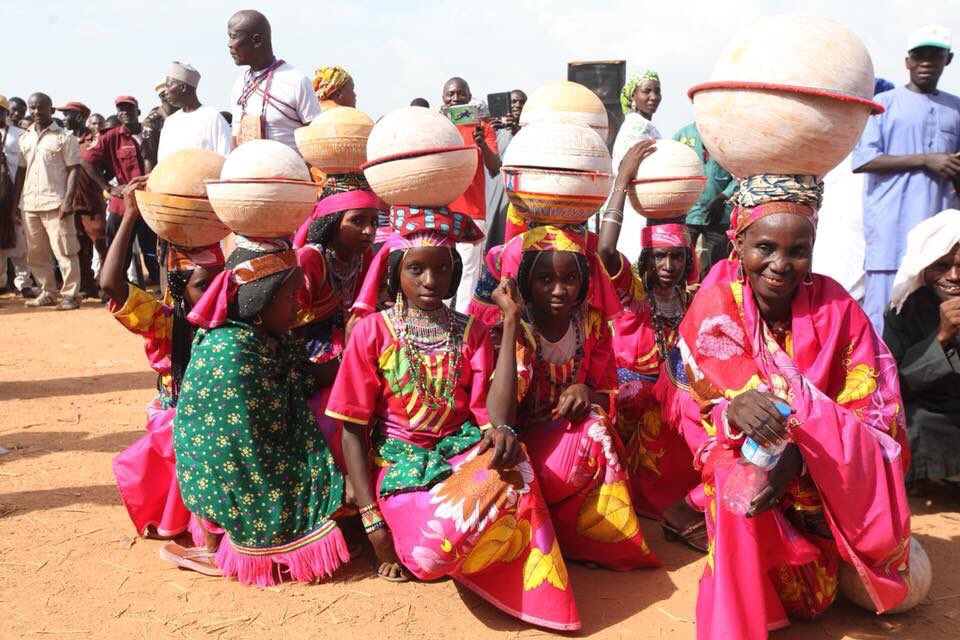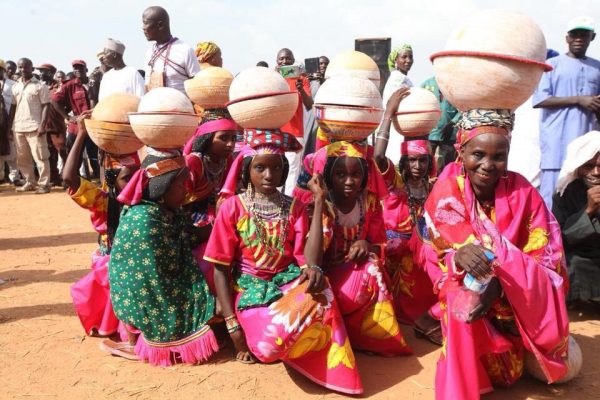The Dakarkari are found in Zuru, Donko/Wasafu and Sakaba LGAs of Kebbi state. Zuru is a Local Government Area in Kebbi State, Nigeria. Its headquarters is in the town of Zuru. It is also the Headquarters of Zuru Emirate. The Emirate comprises four local government areas, namely: Danko-Wasagu, Fakai, Sakaba and Zuru.
Zuru is also known as a major centre for agricultural production with rich cultural events, famous among them are the Golmo and Uhola festivals. celebrated are traditional festivals which is jointly attended by the large Muslim and Christian communities in the area. The Golmo and Uhola festivals have succeeded in uniting the people further where Muslims, Christians and adherents of traditional religion do so many things in common.
Read more about Ethnic Groups in Nigeria
An Overview of the Dakarkari Tribe
Their main centers include Zuru, Ribah, Senchi, Bena, Peni, Bajida and Tade. Many also live in Rijau and Mariga LGAs of Niger state. Generally the Dakarkari are tall and slim. They speak C’lela and Hausa fluently. Some young people speak Hausa only, especially in towns. C’lela has at least three dialects with many sub-dialects. Although this people are widely known as Dakarkari, they refer to themselves as Lelna.
Today their marks are similar to those of their Dukkawa neighbours. Women usually have more marks on their forehead, neck, chest back and the arms. The front teeth were also filed to a point for beauty. Walki is the leather girdle worn till now by men to farm and during wrestling. They live in fenced thatched houses with a visitor’s hut.
The Economy of the Dakarkari
The Dakarkari are mainly farmers and hunters. In search of good land, many have often migrated to other towns and states. However, due to their close affinity to their homelands, they often times prefer to return to their original centers for burials and festivals. They farm guinea corn and millet. Iron ore is also found in their area and used for local smelting works.
The U’hola Festival!!!
The U’hola day in Senchi (Sence) which comes up once in every year; after harvesting the farm produce. It is a festival that is carried out in kind appreciation of what God Almighty has done for giving them good rainfall that lead to many good harvest and for protecting them against evil throughout the farming period and the year.
Sign up to the Connect Nigeria daily newsletter
It is also a festival that celebrates the graduation of suitors (Yadato) who have served their respective father in-laws in (Golmo)- the traditional marriage contract, in lieu of presenting them to their “will-be” husbands or wife’s as the case may be. In other words, it is a festival that marks the transition of young boys and girls into Adulthood. The boy after serving his prospective father in-law in Golmo marriage contract hence, he is presented with a wife. Such girls are usually not deflowered, the U’hola celebration does not allow a young girl who have traded her woman dignity to men. Participants are usually virgins hence, Yadato.
Sources:
All Africa
Joshuaproject
Wikipedia
Featured Image Source: @KBStGovt – Twitter
Got a suggestion? Contact us: [email protected]


